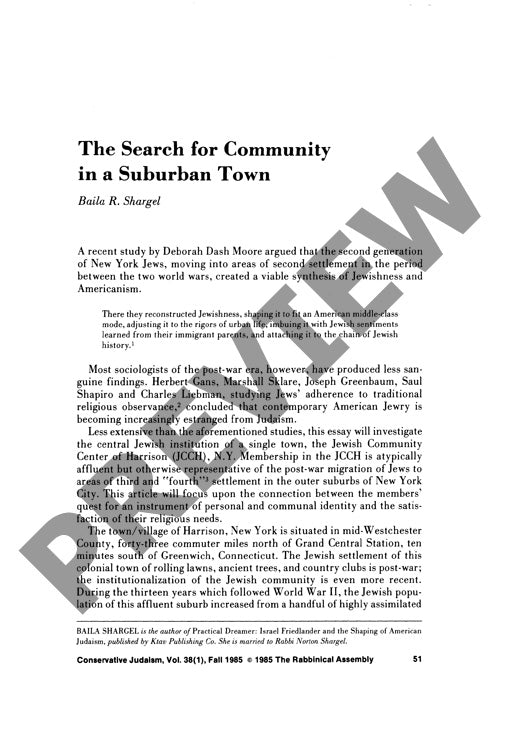The Search for Community in a Suburban T
Couldn't load pickup availability
When affluent Jewish families moved to Harrison, New York in the postwar era, they faced a pressing question: how could they maintain their religious identity and sense of community while pursuing suburban prosperity? The Jewish Community Center of Harrison (JCCH), established in 1958, emerged as an ambitious experiment in addressing this challenge through a multi-purpose institution combining synagogue, educational, and recreational facilities. Through ethnographic observation spanning twenty-seven years, this research reveals that traditional religious practices—not social programming—proved most crucial for building community and preserving Jewish identity in the suburban context. The JCCH's founders established four primary objectives: legitimizing Jewish presence, strengthening youth identity, providing family social opportunities, and creating cohesion among disparate Jewish residents. Using Tönnies' Gemeinschaft-Gesellschaft framework to evaluate various religious and secular activities, the analysis demonstrates that Torah reading, daily minyan attendance, and ritual observance generated stronger community bonds than recreational and social programs. These findings challenge assumptions about suburban Jewish community-building, suggesting that distinctive religious practices, rather than generic social activities, serve as the primary mechanisms for group cohesion and cultural transmission among acculturated American Jews.

More Information
-
Physical Description
-
Publication Information
Published 1985
ISBN
-
Publication Credits
Baila Shargel

